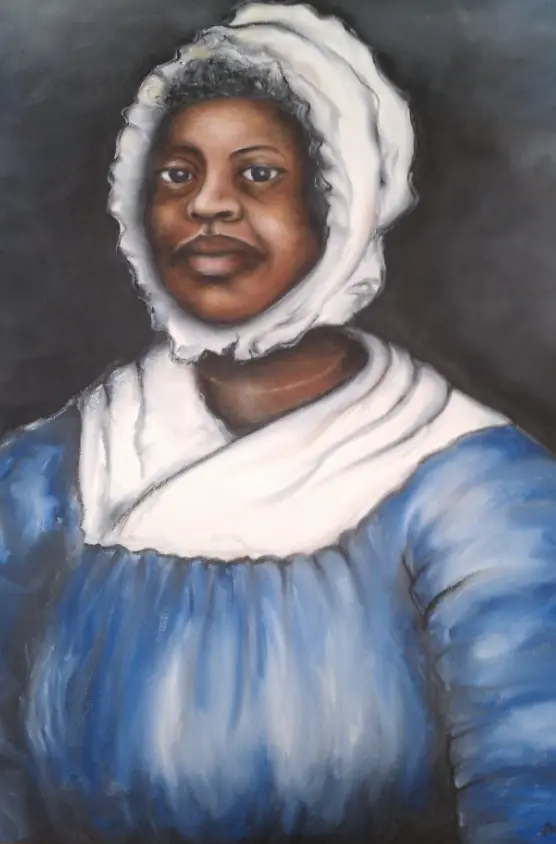From the Haitian Revolution to Galveston, Texas
- Rose Francois

- Jun 2
- 4 min read
There are generations of leaders, women and men, who fought, rebelled, and reimagined freedom long before Juneteenth. That infamous day in Galveston, Texas, when word of emancipation finally reached the last known corner of the enslaved South, was not the beginning. It was an echo, an announcement that arrived years, even decades, after freedom had already been demanded, fought for, and in some places, achieved.
Today it’s important we celebrate not only Juneteenth but also the leaders and visionaries who paved the way, truth-builders, free-thinkers, and believers who dared to dream beyond their bondage. These were people who set their minds and hearts on liberation, despite the cost.
We begin in Haiti, where the earth itself remembers the footsteps of Toussaint Louverture,
the once-enslaved general who outwitted empires and carved a path to freedom
with faith, fire, and focus. The Haitian Revolution (1791–1804) redefined what was possible. Toussaint Louverture, rose to become the brilliant general who led the first successful slave revolt in modern history. Known as "The Black Napoleon," Louverture fought for the abolition of slavery and Haiti’s independence from France. Though he died in a French prison in 1803, his leadership laid the foundation for Haiti’s independence in 1804. Haiti’s victory sent shockwaves across the globe, proving that enslaved Africans could govern themselves and that freedom could be won through strategic resistance, diplomacy, and will. A beacon. A threat. A promise. A legacy
Haiti’s revolution directly inspired resistance movements across the Americas. In Virginia, Gabriel Prosser, a Blacksmith and enslaved man, in 1800 planned a large-scale rebellion aimed at ending slavery. Though the uprising was suppressed, Gabriel’s vision reflected the revolutionary spirit ignited by Haiti. His courage frightened slaveholders and energized freedom fighters across the South.
In New England, Elizabeth “Mumbet” Freeman made history in a different way. Enslaved in Massachusetts, she sued for her freedom in 1781 under the new state constitution’s claim that “all men are born free and equal.” She won. Her case helped dismantle slavery in Massachusetts and set an early legal precedent for abolitionists.
Around this same time, Paul Cuffe—a Black Quaker, sea captain, and wealthy entrepreneur—began advocating for Black self-determination and voluntary repatriation to Africa. He used his wealth to fund education and economic opportunities for free Black communities and financed a voyage to Sierra Leone in 1815. Deeply influenced by the Haitian Revolution, Cuffe saw Black sovereignty and global solidarity as essential to lasting liberation.
Haiti’s declaration of independence was completed by Jean-Jacques Dessalines, Louverture’s successor. Dessalines led the final battles of the revolution and on January 1, 1804, declared Haiti a free Black republic—the first of its kind in the Western Hemisphere. As Haiti’s first head of state, he abolished slavery permanently and proclaimed the land a refuge for all Black people seeking freedom.

In the United States, women like Sojourner Truth and Harriet Tubman continued the fight. Truth, a formerly enslaved woman, became one of the most powerful voices for both abolition and women’s rights. Her famous speeches, including “Ain’t I a Woman?”, challenged systems of oppression at every intersection. Harriet Tubman, born enslaved in Maryland, escaped and returned over a dozen times to lead others to freedom via the Underground Railroad. Her bravery helped pave the way for the widespread self-liberation movements that made emancipation, and Juneteenth possible.

All of this happened before June 19, 1865, when Union troops arrived in Galveston to enforce the Emancipation Proclamation. Juneteenth is not a starting point, it is a milestone along a much longer, deeper journey of resistance, resilience, and revolutionary faith.
The leaders who shaped that journey, Louverture, Dessalines, Cuffe, Freeman, Prosser, Truth, Tubman, and so many others, are the roots of the freedom we continue to defend and define today. Their efforts remind us that freedom has never been granted. It has always been fought for, claimed with courage, nurtured in community, and passed down like sacred inheritance.
As we honor Juneteenth, let us remember it not just as a Texas story, but as a global Black liberation story. One that stretches from the shores of Haiti to the courtrooms of Massachusetts, from Southern plantations to African shores, from whispered plans of rebellion to triumphant declarations of independence.
Juneteenth is not the beginning. It is an arrival. A delayed trumpet on a battlefield already soaked in sacred sweat and blood.
So today we remember: freedom has always been fought for, not granted. Carved out of mountains of resistance, brilliance, and ancestral grit. Let us celebrate Juneteenth not just as a moment in Texas, but as a thread in the vast tapestry of Black liberation.

From Haiti to Harlem. From Sierra Leone to Selma. From Mumbet’s lawsuit
to Nat Turner’s fire. From the ones who ran, to the ones who stayed and fought, to the ones who dreamed beyond their time. This is our inheritance. This is our call. To honor the past, liberate the present, and rise, for the next generation watching and waiting to thrive.
.png)





Comments